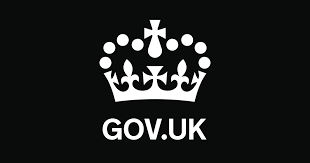Pensions Industry - Current Pensions Scene
The Current Pensions Scene
How to provide for retirement is a very important financial decision for everybody and needs regular review.
The State Pension is unlikely to provide a level of benefits that can be considered sufficient to live on in old age.
There are two main factors driving the change in pensions, these are financial considerations and social changes.
Pensions provide a means of survival, sustenance and shelter for those who are no longer able to earn. This can mean those who are sick and disabled as well as those who have had a full working life and have retired.
The Government has confirmed that its objective is to make people more self-sufficient.
Its aim is for more people to have another income, on top of the State Pension, when they come to retire. This is why it introduced automatic enrolment in October 2012. Stakeholder pensions were introduced back in 2001 with the aim of providing cost effective benefits targeted at the lower paid. But from October 2012, the Government started the phasing in of automatic enrolment, in an attempt to increase the level of self-sufficient pension provision. It also wanted to give protection to those who for various reasons cannot work and encourage those who do work to save.
Changes to State Pension provision have also been made so that the State Pension will be fairer and available to more people. The State Pension is a foundation for retirement, but most people will want to or will need to build up their own savings on top of this. This is why the Government started to introduce workplace pension reforms from 2012 to encourage more people to save in a private pension.
Retirement benefits are a long term commitment. They are built up over 40 years or so while at work and, with increasing longevity, need to provide for a long period in retirement. The earlier someone starts to save, the better chance they have of building up sufficient financial resources for a comfortable retirement.
Retirement provision includes a number of elements, the major one being a formal pension (probably from a combination of company and personal arrangements). It also includes income from other savings and from the State. This is why we cover all of these elements in the syllabus for this certificate.
Financial considerations
People are living much longer than they used to and this means that financial provision needs to be carefully planned to take account of their longer lifespan. The Government has been making changes to pension provision in order to encourage individuals to provide for themselves rather than relying on the State to provide for them. For example automatic enrolment schemes have been introduced in recent years and recently changes have been made to defined contribution arrangements to make them more attractive to individuals giving them greater access to their money.
Changes have also been made to State provision to increase the age at which benefits can be taken to reflect the fact that people are living longer. The age of mortality has been steadily increasing and so it was increasingly unaffordable for the State Pension Age to remain static.
The ‘financial crisis’ of the past few years has also driven change as schemes and the Government try to reduce the cost of providing pensions. The Government has been changing taxation regulations to reduce the thresholds for benefits that can be taken without paying any tax. The introduction of the new flexibilities is also a way of raising taxes as only part of the funds can be taken tax-free. The Government has also been reducing costs by abolishing contracting out and raising the State Pension Age.
The Pensions Act 2004 introduced sweeping changes to the structure of pension schemes. This was known as simplification and the driver behind this was a reduction in costs for both Government and Schemes.
Employers and Trustees have also been trying to reduce the costs of their pension schemes. Many schemes have been carrying out liability reduction exercises such as:
- Pension increase exchanges (PIE) – where members are offered a higher pension in exchange for no further increases in the future.
- Enhanced transfer value exercises (ETV) – where members are encouraged to transfer their benefits out of the scheme by giving them an increased transfer value for a limited period.
- Trivial commutation exercises – with increases to the threshold for trivial commutation many schemes have undertaken exercises to offer members the option of trivially commuting their benefits.
Social considerations
There have been many changes to legislation in recent years to reflect the changes that have been taking place in Society. The legislation ensures that there is equality and that there is no discrimination in many different areas such as:
- age
- sex
- gender (transgender)
- civil partners/same sex partners
- maternity/paternity
All of the above considerations affect the type of legislation necessary to fund pensions.
1. References
This section of study relates to the Current Pensions Scene and the Legislation Changes over time. Information can be found by using the Resources Page of this website.
2.Think about it
Future of pensions - It is generally regarded that the best possible protection for members of Defined Benefit schemes is a strong profitable employer. In regard of the COVID 19 situation, is it possible a pension scheme can push an employer into insolvency?
Write your answers down to structure your revision practice.
3. Fact Finding
Let's find out exactly what the State Pension entails.
STEP 1 - Visit the GOV.UK website by clicking the logo here:
STEP 2 -
Follow the link above and it will take you to the Basic State Pension.
Then in the search box to the right hand side type 'New State Pension'.
STEP 3 - Now click on 'the new State Pension', then read the text to try and answer the following questions:
- Who can claim the new State Pension?
- What are the rules on National Insurance?
- What happens if someone continues to work after retirement age?
4. Test
You can now check your knowledge by a short test. Once completed then check your answers against those given.



